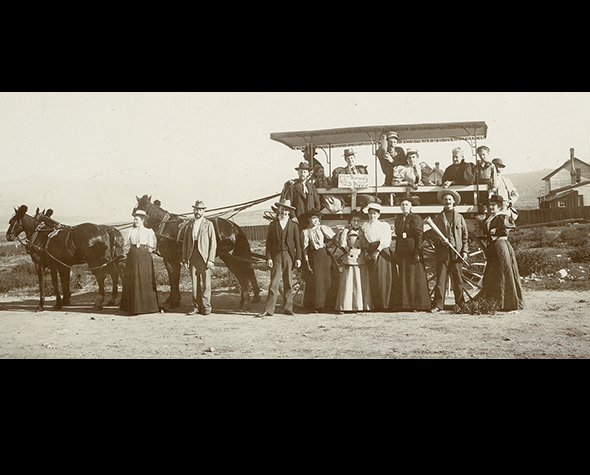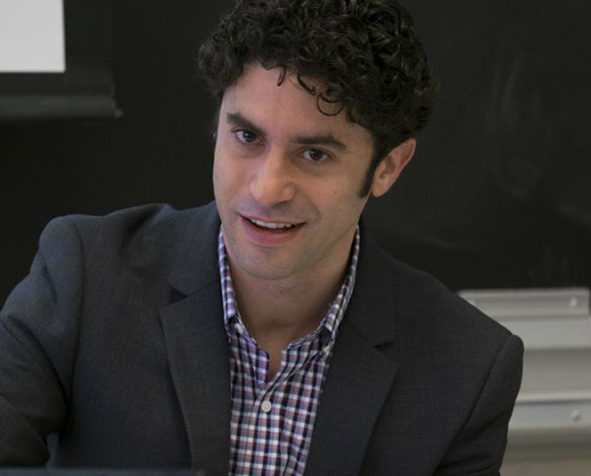Engaging History Through Interdisciplinary Research

In 1904, a group of men emigrating from Eastern Europe to Denver founded the Jewish Consumptives Relief Society (JCRS) to aid victims of tuberculosis. Today, a group of undergraduates, faculty, staff and community partners are exploring the Society’s collections, housed in DU’s Beck Archives. Their aim is to connect history to contemporary questions of immigration and health equity.
This project was undertaken in response to the Council of Independent College’s (CIC) call for “Humanities Research for the Public Good.” According to its website, the CIC initiative aims to make visible archival collections in order “to show how these raw materials of humanities research can address the concerns and experiences of local communities.”
Here at DU, the project is a collaboration of the Center for Judaic Studies (CJS), DU’s Beck Archives, and the Center for Community Engagement to Advance Scholarship and Learning (CCESL) and is organized by faculty-lead Moshe Kornfeld of the Center for Judaic Studies (CJS). The grant requires the involvement of undergraduate researchers and a community partner. The team is working closely with the Rodolfo “Corky” Gonzales Library, which is located near the former site of the JCRS and serves a diverse constituency that includes Orthodox Jewish, immigrant and Latinx communities.
JCRS remained open from 1904-1940, treating thousands of patients from across the country at no cost. Archives from this era include a vast array of patient records, correspondence, photographs and more. A team of six undergraduate students is exploring the archives under the mentorship and guidance of skilled faculty and archival content specialists. This interdisciplinary project draws from expertise across campus, including CJS, sociology, anthropology, the Korbel School of International Studies, biology, the Office of Teaching and Learning and CCESL.
“Studying these materials allows our students to engage the public on serious, pressing questions around immigration and health equity,” Kornfeld explained, “including considerations of how a past medical institution in Denver succeeded in providing high quality health care free of charge to vulnerable populations.
“Students will juxtapose the demographic statistics of Jewish Consumptives Relief Society patients and the institution’s health care philosophy and treatment plans with contemporary efforts to provide care to immigrants and other vulnerable populations. They will share their findings with the public through presentations, exhibits and media projects.”
An exhibit of student works, "Healing with Dignity: Access, Equity & Archives," is now included in the DU library online collections.
“Encouraging students to bring insights from these archives to the public helps cultivate religious and cultural diversity, literacy and bridge-building.”






